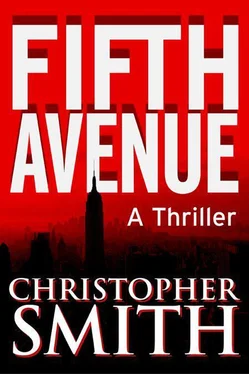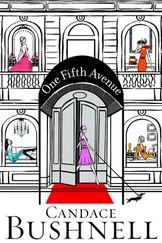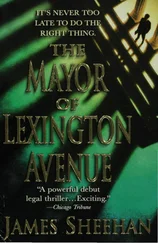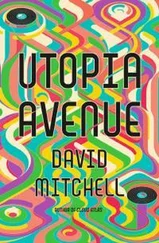For an instant, he was free.
Michael Archer remained in New York. In the six months that had passed since his annulment from Leana, he had left their apartment on Fifth and moved into a large, airy loft in the Village that overlooked the Hudson.
His life was quieter. He rarely went out and he saw only close friends. He refused prime roles in movies and on Broadway, and he refused to be interviewed. Although his agent was hounding him to write another book, he hadn’t written a word in months. His dreams were bad. He supposed he was now something of a recluse.
It was in late September, two months after the incident at The Hotel Fifth, that he received a letter from one of George Redman’s attorneys, suggesting that he join George for a blood test. Michael refused. He didn’t need a blood test to confirm that he was George Redman’s son. His mother’s journal confirmed it.
In her own hand, Anne described-in detail-her affair with George and how she knew that Michael was George’s son. If Redman couldn’t accept that, then Michael decided it was best that he wasn’t part of the man’s life.
Leana came to him in dreams.
He would be walking up Fifth Avenue and she would suddenly appear in the crowd, wearing the very dress she wore that night at The Hotel Fifth, her skin pale and lucent, a tiny pinpoint of bright light wavering from the hole in her stomach. In the dream, she held out her arms to him, called out his name in a voice that wasn’t her own but one that he assumed was his idea of his mother’s. And then she disappeared. When Michael ran after her, it was Louis Ryan’s face he saw, not Leana’s.
He heard from Leana only once since they annulled their marriage. When she called, she was somewhere in Europe with Mario De Cicco, though she wouldn’t say where. In spite of all that had transpired between them-and the truth that they were half brother and sister-he admired her for keeping the conversation as light as she could.
“I’m an expat,” she said. “Imagine that. And I’m happy. For the time being, we’re travelling Europe. We’ll visit other parts of the world and then we’ll choose a place to settle and raise a family. I’ll call you when that happens. Could be several months or several years, but I’ll call.”
“I’m sorry for everything, Leana.”
“I know you are,” she said. “But it’s not your fault-we both were used by him. Just hear me on this-if we don’t let go of all of it, if we don’t move forward, it will color the rest of our lives until we do. And if that happens, he wins, which we can’t let happen. I’m moving on with my life. I want the same for you. We deserve to have our lives back.”
“You’re right.”
“Take care of yourself.”
“Call me when you’ve settled.”
“You’ll hear from me again,” Leana said, and she was gone.
It wasn’t until January that he was ready to sit at his desk and look seriously at his typewriter, the one his agent sent him months ago as a gift.
He knew he couldn’t go on like this. By withdrawing from the world, by hanging onto the past, he was killing himself and everything he’d worked so hard for. His agent had given him a number of story ideas, but only one mattered to Michael, only one was paramount, and if he wanted to move on, if he really wanted to deal with the past, the only way to do so would be to write about it.
He looked at the typewriter. He never wrote on a computer and his agent knew it. He liked the sound of a typewriter. He liked the feeling of removing a piece of paper when he was finished creating something on it. He liked the rhythm of the words as they were pounded out.
He put a blank sheet of paper into the typewriter and closed his eyes. That title, that opening sentence and the first few paragraphs came to him at once. They had been lingering in his mind since the original manuscript was burned.
But could he do it? Could he really write the story that had changed so many lives? And if he did write about it, if he did tell the truth even if he did change the names, would he be ready for all the controversy that would ensue? Michael wasn’t sure. Novel or not, people would know the story he’d written was based on fact.
Maybe he’d change the names later. Maybe he wouldn’t. What mattered now was getting it on paper.
And then he remembered what the man Cain said to him that day in his apartment. Just moments after he read the first chapter and destroyed the manuscript, Cain asked how Michael could use these events, these places. Michael’s answer was immediate-perhaps he would use a pseudonym.
He rested his hands on the typewriter and was relieved to find that it no longer seemed as threatening. He thought of Leana then, thought of all the Redmans, chose a generic pseudonym and after a moment, he began to type:












